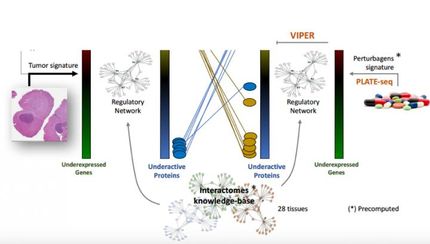Merck Initiates Phase III Study of Stimuvax in Breast Cancer
STRIDE study will evaluate the efficacy and safety of the investigational therapeutic cancer vaccine, Stimuvax, in advanced breast cancer
Merck KGaA announced the initiation of its global Phase III clinical study of the therapeutic cancer vaccine Stimuvax® (BLP25 liposome vaccine, L-BLP25) in patients with advanced, inoperable breast cancer. The STRIDEa study will determine if Stimuvax can extend progression-free survival in patients treated with hormonal therapy who have hormone receptor-positive, locally advanced, recurrent or metastatic breast cancer. Overall survival, quality of life, tumor response and safety will also be assessed in this study. The STRIDE study will be supervised by an expert Steering Committee and is sponsored by Merck, which is leading the development of Stimuvax.
STRIDE will enroll more than 900 patients with advanced breast cancer at an estimated 180 sites in over 30 countries – within North America, Europe, Asia and Australia; the Principal Investigator is Dr Lawrence Shulman, Chief Medical Officer and Senior Vice President for Medical Affairs, Dana-Farber Cancer Institute, Boston, USA.
Stimuvax is an investigational therapeutic cancer vaccine designed to stimulate the body’s immune system to identify and target cancer cells that express MUC1, an antigen commonly expressed in breast cancer as well as in other common cancer types such as non-small cell lung cancer (NSCLC), multiple myeloma, and colorectal, prostate and ovarian cancers.
The Phase III program for Stimuvax was initiated following results from a randomized Phase IIb study of 171 patients with inoperable stage IIIb NSCLC, in which Stimuvax showed a trend towards extending median overall survival from 13.3 months for patients receiving best supportive care (BSC) to 30.6 months for patients receiving Stimuvax plus BSC. Reported side effects included mild-to-moderate flu-like symptoms, gastrointestinal disturbances and mild injection-site reactions. A further long-term safety analysis in 16 patients receiving prolonged treatment with Stimuvax from 2 to 8.2 years showed the most common treatment-related adverse events were injection-site reactions (ISRs) with no evidence of autoimmune reactions. These data also show that the occurrence of ISRs decreased with long-term therapy (>1 year).
Other news from the department research and development

Get the life science industry in your inbox
By submitting this form you agree that LUMITOS AG will send you the newsletter(s) selected above by email. Your data will not be passed on to third parties. Your data will be stored and processed in accordance with our data protection regulations. LUMITOS may contact you by email for the purpose of advertising or market and opinion surveys. You can revoke your consent at any time without giving reasons to LUMITOS AG, Ernst-Augustin-Str. 2, 12489 Berlin, Germany or by e-mail at revoke@lumitos.com with effect for the future. In addition, each email contains a link to unsubscribe from the corresponding newsletter.






















































